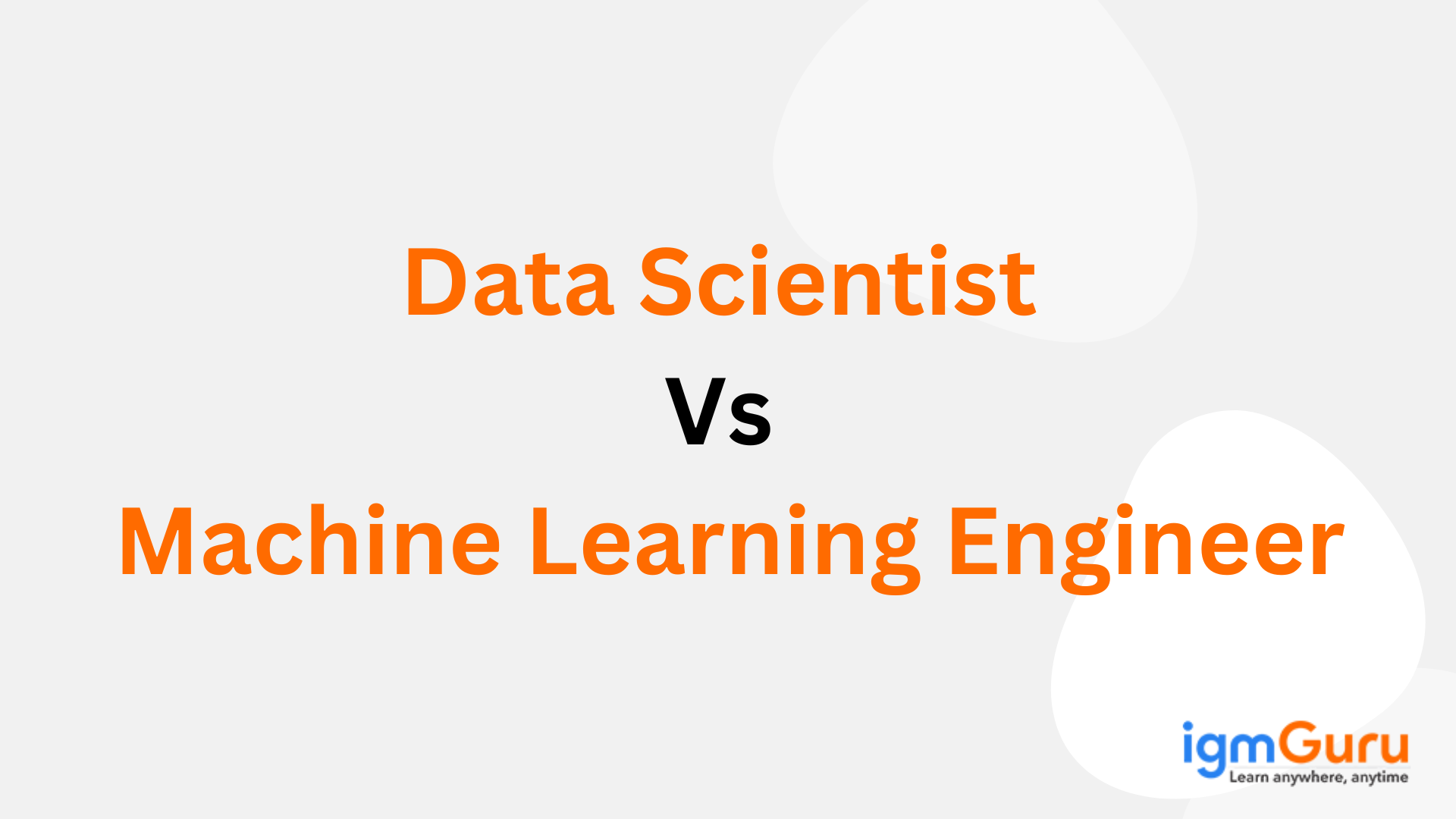
Many individuals find themselves being a bit confused between data scientist vs machine learning engineer. This is because these are two exceptionally imperative roles that many organizations are taking the aid of. This article gives an outline of the distinction between these two profiles.
A machine learning engineer is a professional with the skills and abilities to develop, maintain and optimize algorithms. These algorithms are trained by these experts to solve various data-related problems.
They employ gigantic data sets to help in building models, which are capable of predicting future outcomes or events. Their job entails working with software developers and data scientists.
A data scientist is a professional with knowledge of employing statistical methods, data mining, predictive analytics and machine learning. All these skills and knowledge are used to convert raw data into highly actionable insights for an organization.
These professionals are high in demand throughout many domains and industries like finance, healthcare and banking. Their skills in identifying anomalies, trends and patterns makes them an asset to every organization.
Checkout igmGuru's Tableau certification program to unlock career opportunities.
Here is a comparative table to better understand the different roles and responsibilities of a data scientist and a machine learning engineer.
| DATA SCIENTIST | MACHINE LEARNING ENGINEER |
| They identify & validate business processes that are solvable by using ML. | Their job is to deploy deep learning and ML models to production. |
| They must develop custom models and algorithms. | They carry out inference testing on many different types of hardware. This includes GPU, edge devices & CPU. |
| They are in charge of developing data annotation strategies. | They are in charge of version control of experiments, metadata & models. |
| They must analyze & visualize data at various stages of the machine learning lifecycle. | They must optimize models for better memory, performance, throughput & latency. |
| It's their job to coordinate with cross-functional stakeholders. | It's their job to develop custom tools for optimizing the complete deployment workflow. |
| They identify generative synthetic data & additional datasets. | They take care of debugging, model performance & maintenance. |
Here is a distinction in these two profiles on the basis of required skill set.
| DATA SCIENTIST | MACHINE LEARNING ENGINEER |
| Programming | Programming |
| Data science | Data modeling |
| Data analytics | Conceptual knowledge of ML |
| Presentation skills | Data structures |
| Problem-solving | Software engineering |
| ML - supervised & unsupervised | ML frameworks |
| Statistics | Statistics |
| Written & oral communication skills | |
| Data visualization |
Both data scientist vs machine learning engineer are profiles that require great technical prowess. Here is a table talking about the tech stack knowledge needed to become a pro at the respective profiles.
| DATA SCIENTIST | MACHINE LEARNING ENGINEER |
| Git, Github, Bitbucket | Git, Github, Bitbucket |
| python/ SQL/ R | Python / Scala / C++ |
| ML - Rapids, Scikit-learn, Fast.ai | DL - TensorFlow, PyTorch, MXNet, JAX |
| Google Colab notebooks, Jupyter, SageMaker | Bash, Linux |
| Visualization - Seaborn, Matplotlib, Bokeh | Serving - TensorRT, ONNX, TFServing, TorchServe |
| Cloud - GCP/ AWS/ Azure | Cloud - GCP/ AWS/ Azure |
| Spark | Kubernetes, Docker |
Both ML engineers and data scientists are high in demand. Each of these professions are ones that will rule the future and choosing to step into either of these is highly beneficial.
Course Schedule
| Course Name | Batch Type | Details |
| Machine Learning Training | Every Weekday | View Details |
| Machine Learning Training | Every Weekend | View Details |